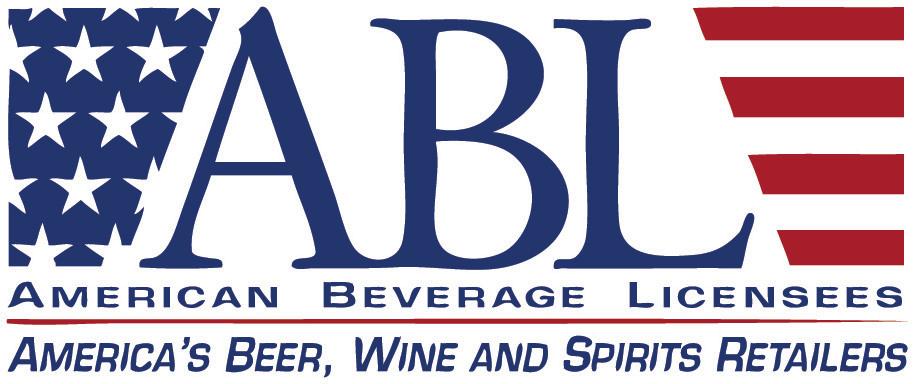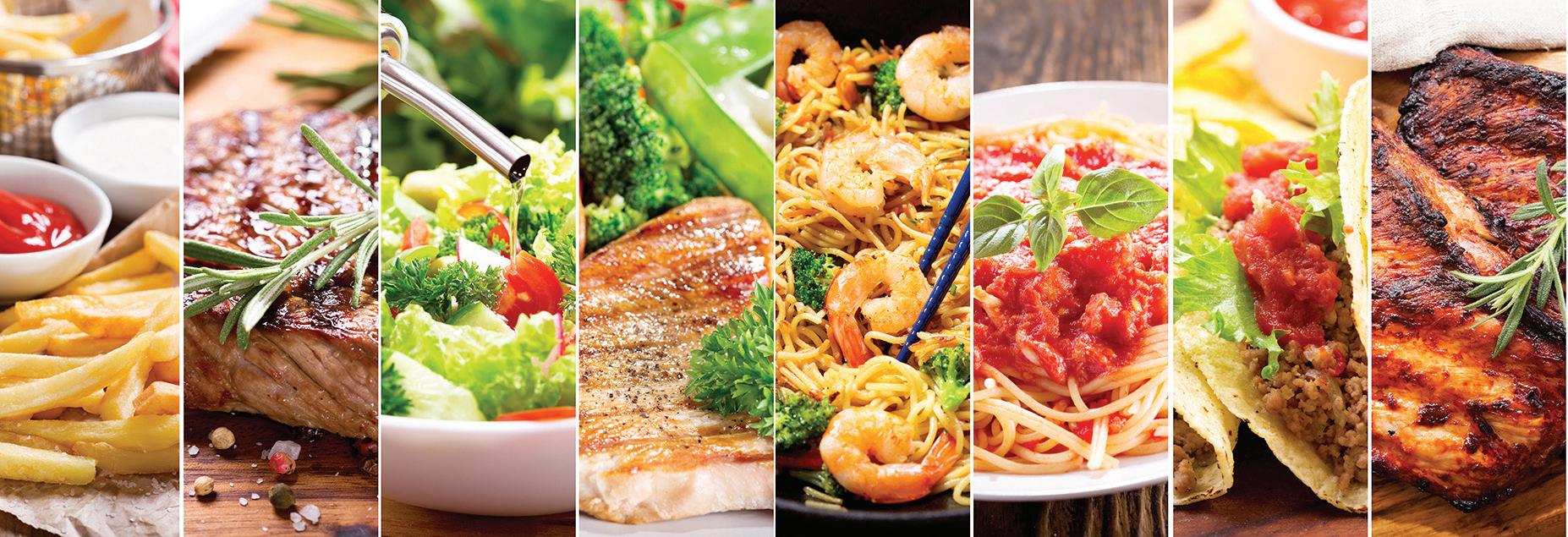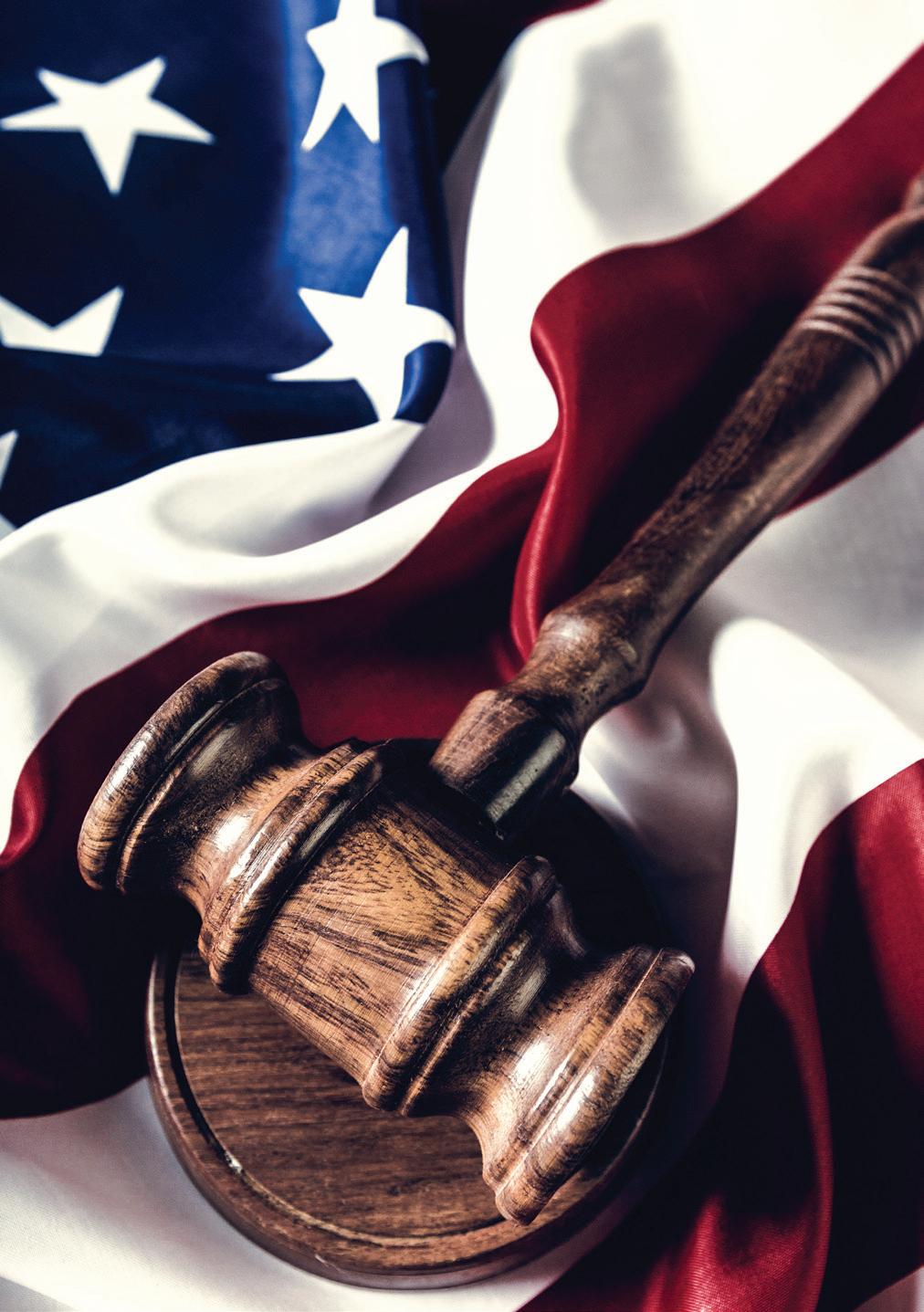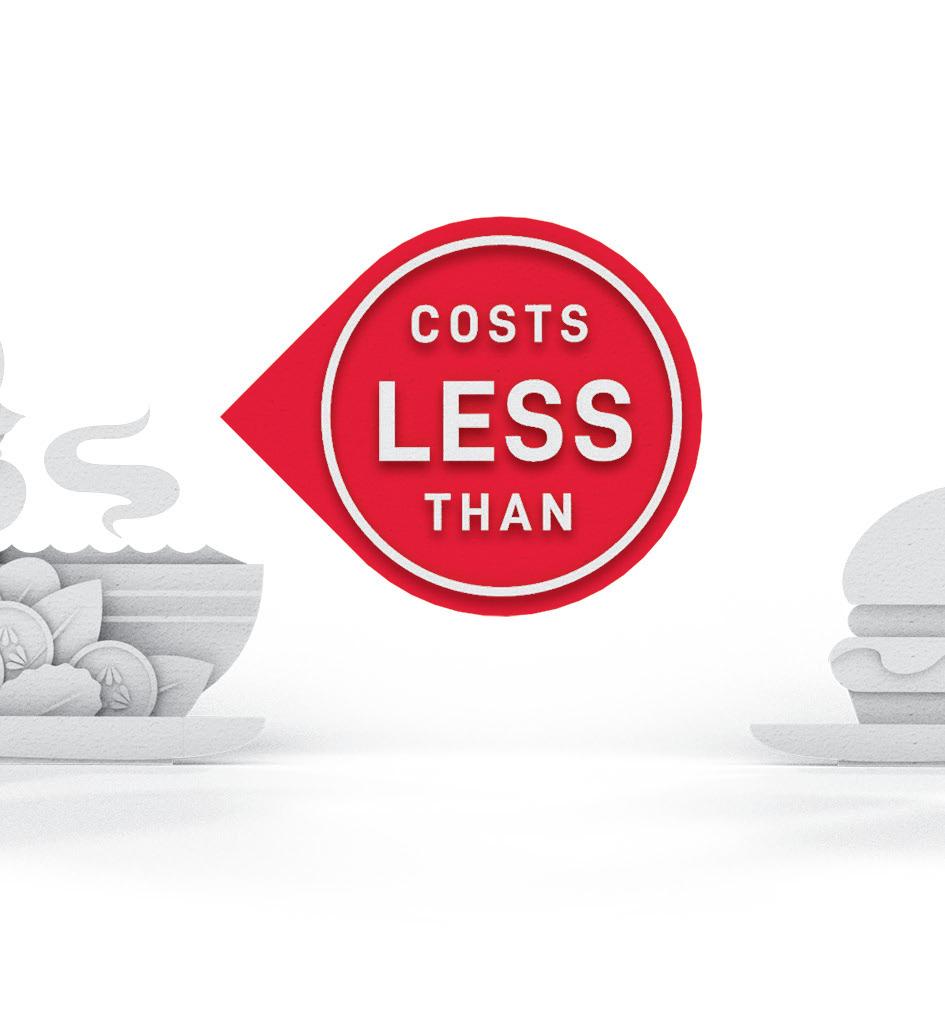
11 minute read
ABL Dispatch
ABL Dispatch — The Latest Industry News from Washington
BY JOHN BODNOVICH, ABL EXECUTIVE DIRECTOR
It has been a busy first few months of 2021 in Washington, D.C., and throughout the country as bar, tavern and package store owners have been flexing their grassroots muscles in places like Madison. Congratulations to the TLW and your legislative leadership team for securing the passage of Assembly Bill 32, permitting the sale of cocktails to go, and the other important work the TLW is doing at the Capitol.
TLW President Weighs in on Perishable Food and Beverage Tax Credit Legislation
In a recent interview with Politico, TLW President Chris Marsicano spoke out on the need for a one-time perishable food and beverage tax credit to help struggling bars, taverns, supper clubs and restaurants recoup some of their losses from pandemic-related closures. The tax credit is included in the Hospitality and Commerce Job Recovery Act of 2021.
According to the Politico article:
A provision in the legislation would offer a targeted tax credit for the kinds of bars, taverns and restaurants represented by the American Beverage Licensees (ABL), said the group’s executive director John Bodnovich. The tax break would cover 90% of the estimated $900 million in perishable food and beverage inventory losses from March 13 to Sept. 30, 2020, he said.
“We’re not out of the woods yet and additional relief is certainly warranted,” Bodnovich said. “Every little bit helps.”
Clear example: Chris Marsicano, owner of the Village Supper Club in Delavan, Wis., agreed. The 56-year-old family business received a shutdown order just hours before opening for dinner on St. Patrick’s Day last year, precipitating a long decline to come. His business was off 40% in 2020.
— Politico
pounds of chicken. Some of the food was donated to homeless shelters and, though some beer companies took back their kegs, a lot of what he had on tap was also thrown away because of expiration dates …
Not a silver bullet: He doesn’t expect the legislation to cure all that ails the hospitality industry, but said it would provide a helpful additional lifeline.
Marsicano didn’t lay off any employees last year, some of whom have worked there for decades, but he cut some of their hours and didn’t make his normal 20-odd seasonal hires last summer.
ABL is working with the Perishable Food and Beverage Coalition to support this bill.
Restaurant Revitalization Fund
Congress approved the ABL-supported, $1.9 trillion American Rescue Plan, which President Joe Biden signed into law on March 11. Included in the bill is the Restaurant Revitalization Fund (RRF), which creates a $28.6 billion grant program for restaurants, bars and other on-premise businesses through the U.S. Small Business Administration (SBA). The following is a summary of the grant program as of today, with further modifications expected as the SBA implements the program.
What is it?
The RRF grant program provides $28.6 billion in cash grants to qualifying businesses that experienced revenue losses in 2020. The U.S. Department of the Treasury will allocate funds so that the SBA can administer the program. There are no details available from the SBA yet.

Who is eligible?
“Eligible entities” are businesses that can demonstrate that “the uncertainty of current economic conditions makes necessary the grant request to support the ongoing operations of the eligible entity” and businesses “in which the public or patrons assemble for the primary purpose of being served food or drink” that were open on Feb. 15, 2020. These entities include:
• Restaurants • Food stands, food trucks and food carts • Caterers • Saloons, inns, taverns, bars and lounges • Brewpubs, tasting rooms and taprooms
Who is ineligible?
State or local government-owned businesses; any business owned or operated (together or with an affiliate business) with more than 20 locations (regardless of whether those locations do business under the same name or different names) as of March 13, 2020; any business that has a pending grant application or has received a grant under Section 324 of the Economic Aid to Hard-Hit Small Businesses, Nonprofits and Venues Act; and publicly traded companies are not eligible.
How much can an eligible business receive?
Grants will equal the amount by which the recipient’s gross receipts decreased in 2020 as compared to 2019, less the amount of first- and second-draw Paycheck Protection Program (PPP) loans received by the business. Businesses that were established during 2019 can receive a grant equal to the difference between either average monthly 2019 gross receipts multiplied by 12 or average monthly 2020 gross receipts multiplied by 12.
Businesses that were established on or after Jan. 1, 2020, can receive a grant equal to eligible payroll expenses, less gross receipts from that year. The grant is limited at $10 million for each recipient or $5 million per location. While a business that received a PPP loan or Economic Injury Disaster Loan (EIDL) can still qualify for this grant, previous loan money awarded will reduce how much a business is eligible to receive.
What can Restaurant Revitalization funds be used for?
They can cover any of the following types of expenses that an eligible business incurred between Feb. 15, 2020, and Dec. 31, 2021:
• Payroll costs • Payments of principal or interest on any mortgage obligation (not to be used for prepayment of principal on a mortgage obligation) • Rent payments, including rent under a lease agreement (not any prepayment of rent) • Utilities • Maintenance expenses that include construction to accommodate outdoor seating, walls, floors, deck surfaces, furniture, fixtures and equipment • Supplies, including protective equipment and cleaning materials • Food and beverage expenses that were within the scope of normal business practice before the covered period • Operational expenses • Paid sick leave • Any other expenses that the SBA administrator determines to be essential to maintaining the eligible business
How will these funds be taxed?
The grant is excluded from gross income and the business will be able to deduct expenses paid with grant funds from its gross income.
What if a grant recipient can’t or doesn’t use all of the funds it received?
Those funds will be returned to the Treasury.
When will the grant be accessible?
The SBA is working to develop guidance for applicants and on how to implement the program.
How do I apply?
So far, the SBA has not released guidance or set up an online portal for applications. It is also worth remembering that applications for the first 21 days will be limited to women-owned, veteran-owned, and socially or economically disadvantaged businesses. During the first 60 days after the
act becomes law, $5 billion of the RRF is reserved for grants to eligible entities with gross receipts in 2019 of not more than $500,000. All eligible businesses have until Dec. 31 to apply.
The SBA is currently working to implement the program and ABL will provide more information to TLW members as soon as possible.
Other Provisions in the American Rescue Plan
While the RRF is the most significant policy item in the American Rescue Plan for bars and taverns, there are a few other provisions in the legislation that can help hospitality industry businesses, including:
• An Employee Retention Tax Credit (ERTC) extension.
The law extends the ERTC through Dec. 31, 2021. • PPP funding. The law adds $7.25 billion to the pool of funds for PPP loans. • EIDL funding. The law adds $15 billion more in funds for EIDLs. • SBA grants. The law adds $1.25 billion for SBA grants to live venues and cultural institutions.
$15 Minimum Wage Fails in Senate, but Looms for Future Legislation
During the American Rescue Plan Act legislative process, the Senate Parliamentarian ruled that language in the American Rescue Plan to increase the federal minimum wage to $15 per hour did not qualify for action under budget reconciliation. While there was some discussion that Senate Democrats might introduce an amendment to remove tax breaks for companies that do not pay employees $15 per hour, that approach was abandoned as Democratic Senate leadership sought to quickly pass its version of the rescue plan for the bill to become law before March 14. While the $15 minimum wage fight is over for this legislation, it remains a priority for Democratic leadership and is likely to return in future policy negotiations.
Extending the PPP
On March 30, President Biden signed into law the PPP Extension Act, which extends the program to May 31, 2021, instead of the date of March 31, and gives the SBA an additional 30 days to process loans. The recently passed $1.9 trillion COVID-19 relief bill provided additional funding for PPP first- and second-draw loans, but did not extend the deadline for PPP applications. ABL joined a group of trade associations supporting the PPP Extension Act.
Some Alcohol Tariffs Suspended for Four Months
On March 4, the U.S. and U.K. issued a joint statement announcing that the tariffs on single-malt scotch, single-malt Irish whiskey from Northern Ireland, liqueurs and cordials, and certain wines will be suspended until July 4, 2021. (The U.K. is, however, maintaining its current tariff on American whiskey in response to U.S. steel and aluminum tariffs. The European Union’s tariff on American whiskey remains scheduled to double to 50% on June 1, 2021.) On March 11, the U.S. Trade Representative (USTR) suspended tariffs on goods from the EU for four months in connection to a Boeing/ Airbus dispute.
ABL has been actively working with the Toasts Not Tariffs Coalition to call for the permanent termination of tariffs on alcohol.

Estate Tax Repeal Bill Reintroduced
Reps. Jason Smith (R-Mo.) and Sanford Bishop (D-Ga.) reintroduced the Death Tax Repeal Act in the House, while Senate Minority Whip John Thune (R-S.D.) reintroduced it in the Senate. ABL joined other members of the Family Business Coalition in a letter supporting the legislation. ABL plans to sign on to an additional letter from the Family Business Estate Tax Coalition supporting these bills as well. The House bill currently has 121 cosponsors and the Senate has 25.
Save the Date!
ABL will hold its 2021 Annual Meeting Oct. 17-18 at the Hilton New Orleans/St. Charles Avenue in New Orleans, La. More details will follow. TLW
ABL is the voice of America’s beer, wine and spirits retailers in Washington, D.C. ABL represents the TLW and its many members, as well as thousands of other on- and off-premise retailers of beverage alcohol across the United States.
THREE TYPES OF BUSINESS INSURANCE YOUR BAR SHOULDN’T GO WITHOUT
Running a bar is hard; add in the potential for injuries or other losses and it’s obvious that you need the best possible protection for your livelihood.
3 Types of Insurance Your Bar Needs 1. General Liability Business owners have a duty to take reasonable steps to protect customers from known hazards. General liability insurance provides coverage for general business claims involving injuries and property damage.
2. Liquor Liability Alcohol service creates unique risks. Liquor liability insurance is critical for claims and litigation that arise because of alcohol service and damage or injury caused by an intoxicated person. Even if your business is not liable in these situations, legal defense costs can add up quickly.
3. Cyber Liability The risks associated with data security (malicious and accidental) continue to grow in number and sophistication. Cyber liability insurance provides data security and privacy coverage that addresses direct losses for your business and third-party liability claims. Additional considerations: • Employment Practices Liability is designed to protect your business from employee-related claims and allegations, such as sexual harassment, discrimination or wrongful termination. In today’s litigious climate, these damaging claims can put you out of business.
• An Umbrella Policy provides additional coverage against catastrophic losses. While you never expect the worst, you can plan for it.
Don’t regret that you didn’t get the right insurance. Avoid major financial loss and costly litigation by selecting a company that customizes coverage options based on unique business needs. Find your local Society agent at societyinsurance.com.
This information is not professional advice and does not establish compliance with any law, rule or regulation. This information contains only a general description of coverages and is not a statement of contract. All coverages and limits are subject to the terms, definitions, exclusions and conditions in the policy.
© 2021 Society Insurance


Filling you up now so you won’t be hungry later. Small detail. Big difference.


Today’s cut corner can easily turn into tomorrow’s missing piece. That’s why it’s so important to invest in staying protected against the unique risks that restaurants and bars face. With forty years of experience in specialized coverage, we’re prepared to handle those challenges so that you can focus on what’s next.

To learn more about how we deliver the small details that make a big difference, call 1-888-5-SOCIETY or visit societyinsurance.com.








